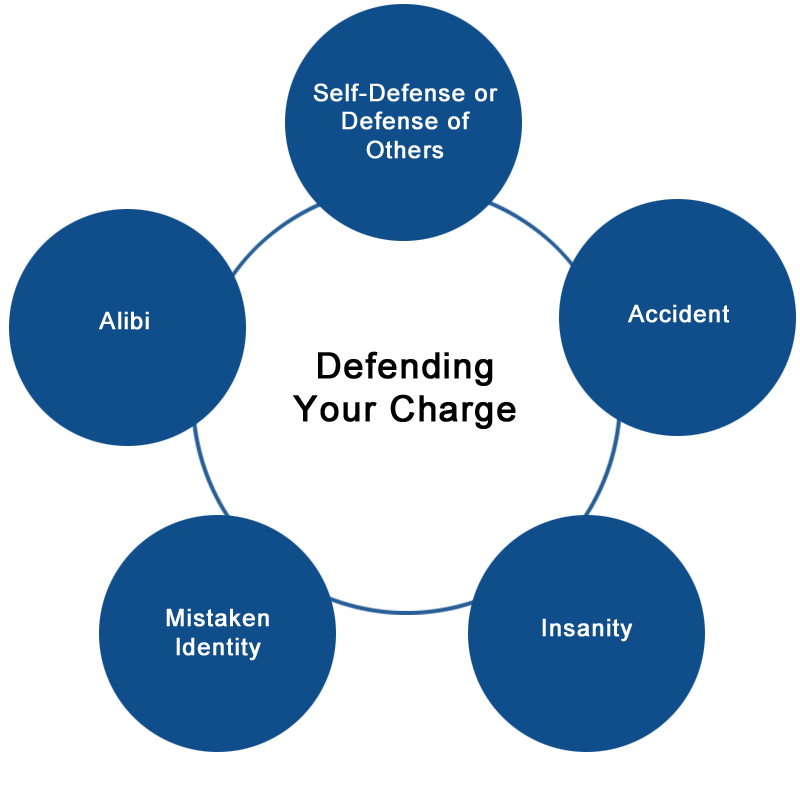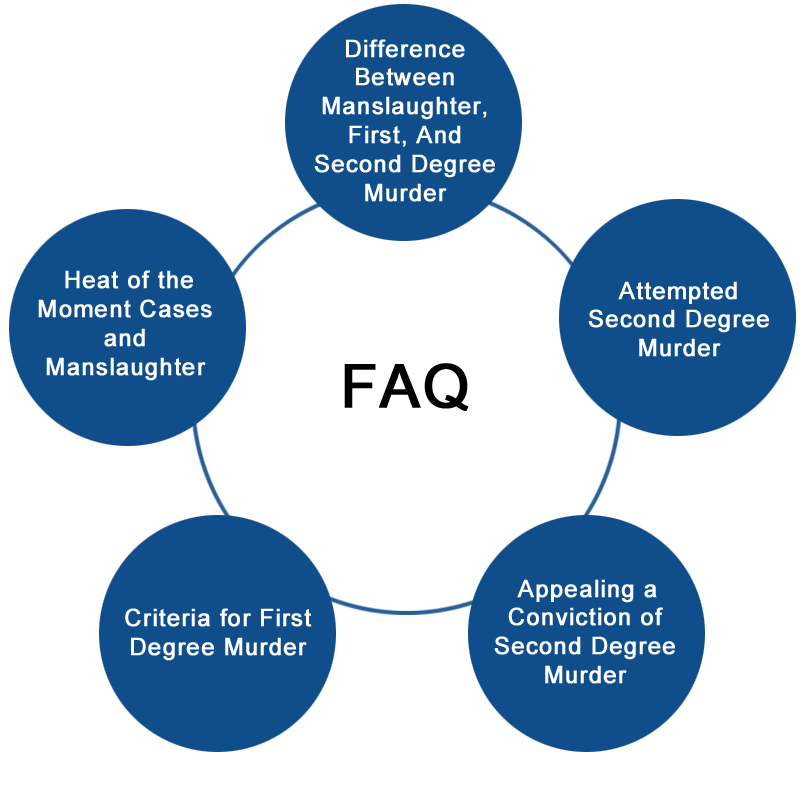
Second Degree Murder in Louisiana
As defined by Louisiana statute §30.1, second degree murder describes the act of intentionally killing another person. However, to qualify as second degree, the act must satisfy several specific conditions.
Condition No. 1: Intentional Harm. As written in the law, this condition applies when “the offender has a specific intent to kill or to inflict great bodily harm.” This speaks to the intentionality of the act – for example, shooting at another person with the purpose of killing or severely injuring them.
Condition No. 2: Death During the Commission of Certain Crimes. The text of the law cites several specific crimes that would satisfy this condition, including rape, arson, burglary, kidnapping, aggravated escape, drive-by shooting, armed robbery, simple robbery, cruelty to juveniles and terrorism. The law is clear that murder involving one of these crimes constitutes second degree murder, even if the perpetrator “has no intent to kill or to inflict great bodily harm.”
Condition No. 3: Distribution of Controlled Substances. The law makes it very clear that if someone is found to have distributed a controlled substance (as defined in Schedules I through V of the Uniform Controlled Dangerous Substances Law) “which is the direct cause of the death of the recipient who ingested or consumed the controlled dangerous substance,” it can be charged as second degree murder.


Condition No. 4: Subsequent Distribution Leading to Death. The law also allows charges of second degree murder in cases where the offender did not actually distribute controlled substances to the victim. They can be charged simply for distributing it “to another who subsequently distributes or dispenses such controlled dangerous substance which is the direct cause of the death of the person who ingested or consumed the controlled dangerous substance.”
As for the punishment, the law spells it out plainly “Whoever commits the crime of second degree murder shall be punished by life imprisonment at hard labor without benefit of parole, probation, or suspension of sentence.”
Essentially, the statutes for second degree murder create a charge to punish those who cause death with intention rather than premeditation, or as a consequence of criminal activity or distributing drugs.
 Defending Against Second Degree Murder Charges
Defending Against Second Degree Murder Charges
The exact defense against charges of second degree murder will vary based on the specific circumstances of the case, the quality of legal representation and the court’s own interpretation of the statutes surrounding the charges. That said, here are a few defenses to consider:
Acting in Self-Defense or Defense of Others: This argument posits that the defendant felt there was immediate danger of death or injury to themselves or others, and acted purely as a means of protection or self-preservation. This defense requires the defendant to prove they had reasonable belief that they or others were in danger.
Accident: This defense questions the intentionality of the act, claiming that the death was merely accidental. To prove this, the defendant would have to demonstrate they were not acting recklessly or negligently at the time of the incident.
Insanity: In some cases, demonstrating that the defendant was not able to understand their own actions or to distinguish right from wrong can be an effective defense. The defendant in this case would need to show demonstrable mental illness or injury at the time of the incident.
Mistaken Identity: This defense posits that the defendant has been incorrectly identified by witnesses and was thus wrongfully accused of the crime.
Alibi: This defense requires evidence that the defendant was not present when the crime occurred, thus proving that they could not possibly have been the perpetrator.
Acting Under the Influence: This defense, arguing that the defendant was under the influence of drugs or alcohol at the time of the offense, does not completely mitigate blame for the crime but does cast doubt or intention.
Duress: This defense requires the defendant to admit to the act, but to demonstrate that they only carried it out against their will and under threat against themselves or others.
Lack of Evidence: The onus is on the prosecution to prove beyond a reasonable doubt that the defendant committed second degree murder. This defense contests their evidence to that effect.
Heat of Passion: As this demonstrates a lack of premeditation, showing that the act was committed due to a sudden emotional outburst could potentially reclassify it as manslaughter, dependent on the circumstances and jurisdiction.
 Frequently Asked Questions
Frequently Asked Questions
What Is the Difference Between Manslaughter, First, And Second Degree Murder?
Just as Louisiana law creates specific conditions for second degree murder charges, it also spells out what constitutes first degree murder and manslaughter in detail. First degree murder requires premeditation, unlike second degree murder, and adds specific criteria including causing death during the commission of a felony, killing several people or killing certain protected individuals such as children and police officers.
As a more serious crime, first degree murder carries significantly higher consequences than second degree murder, including the possibility of life without parole and even the death penalty.
Manslaughter, like second degree murder, does not require showing premeditation. As such, this charge is often applied in cases where the defendant acted in the heat of the moment, such as a domestic dispute that turned fatal. As the act lacked intention, a manslaughter charge will often carry smaller penalties and a shorter prison sentence.
Can I Be Charged with Attempted Second Degree Murder?
Yes. Much like second degree murder charges, attempted second degree murder charges would entail any act wherein a person intentionally kills another but without premeditation or kills another person during the commission of certain crimes. The difference is, in cases of attempted second degree murder, the victim survives the encounter. Because the intention was still there, attempted second degree murder is considered a felony and carries heavy penalties including imprisonment at hard labor for a sentence between 10-50 years. In cases where the intended victim was a member of law enforcement who was actively performing their duties, that sentence is increased from 20-50 years.
Is It Possible to Appeal a Conviction of Second Degree Murder?
Under certain conditions. Grounds that may be presented to an appeals court can include everything from errors on the part of the court, either in prosecution or in jury instruction; lack of evidence; misconduct by prosecution; or ineffective counsel.
Preparing to Win
The best defense against charges of second degree murder is to be prepared. At The Claiborne Firm, we approach every case with meticulous dedication, conducting exhaustive investigations, analyzing every piece of evidence and creating a compelling argument. We’ve proven time and time again that the side that knows more about the case enjoys more favorable outcomes in the courtroom. If you or someone you care about is under investigation for second-degree murder in Louisiana, please submit your contact details below to arrange a free, no-obligation review of your case with the defense attorneys at The Claiborne Firm.
Call (504) 294-8552 or Schedule a Free Case Evaluation Online
